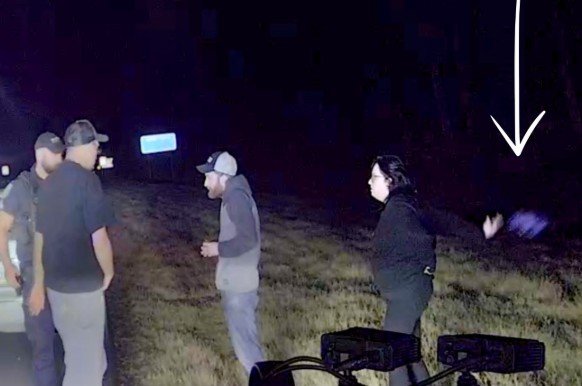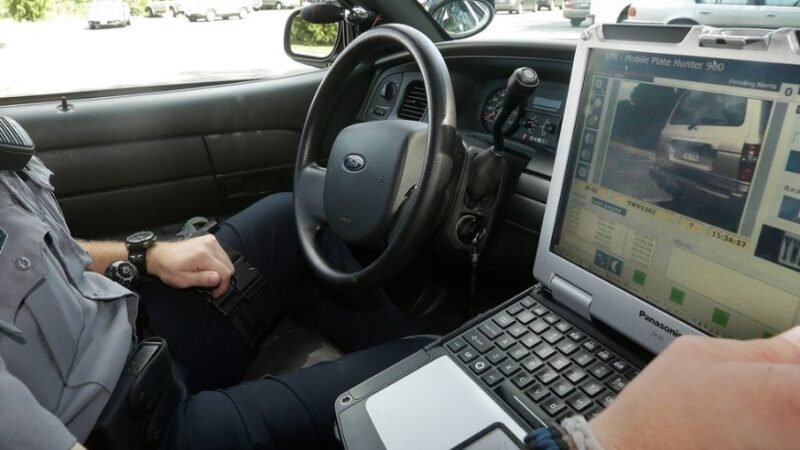Georgia Court Grants Appeal in Drug Case Over Unlawful Detention and False Identification

The Georgia Court of Appeals has granted an interlocutory appeal in the case of Keith Shumate, challenging the denial of his motion to suppress evidence obtained during a November 30, 2020, encounter with law enforcement. The appeal centers on the circumstances surrounding the initial detention and subsequent search that led to the discovery of drugs.

At approximately 2:30 a.m. on November 30, 2020, two officers on routine patrol with a K-9 unit stopped at a convenience store for drinks and to make consensual encounters with patrons. As they arrived, they noticed a small car parked in the lot with two occupants, one of whom was the driver, Shumate. The officers observed that the car’s windows were fogged, which raised suspicion that the vehicle may have been parked for a while. As a result, they decided to approach the vehicle.
Sgt. Smith approached the driver’s side, while Officer Mitchell approached the passenger side. Shumate told Sgt. Smith that he was attempting to fix a broken door handle. Smith asked Shumate for his driver’s license, and Shumate provided a license with a picture of a person who was not him. As Smith checked the information, Officer Mitchell noticed a screwdriver in Shumate’s hand, which led him to request both Shumate and the passenger to exit the vehicle for officer safety. Both individuals were handcuffed.
The officers then conducted separate interviews with Shumate and his passenger. The statements provided by both individuals did not match, prompting the officers to conduct a K-9 free-air search around the vehicle. After the dog alerted, drugs were discovered inside the vehicle. Following the search, Sgt. Smith confronted Shumate about the false driver’s license, at which point Shumate provided his real name and date of birth. Both Shumate and his passenger were arrested on charges stemming from the discovery of the drugs.
Initial Encounter and False Identification Charge
Shumate argued that the officers were not authorized to arrest him for providing a false name during what he claimed was a voluntary first-tier encounter. He contended that because the officers were not engaged in “official duties” at the time, they could not arrest him for giving a false name. The Court disagreed, finding that the officers’ actions were within the scope of their official duties during a voluntary encounter. The officers had the lawful right to request identification from Shumate, and although he could have declined or ignored the request, he could not provide false information with the intent to deceive the officers.
The Court found that when Sgt. Smith recognized that the license Shumate presented did not match his appearance, the officers had an objective, particularized basis to further investigate the situation. The officers’ initial actions were deemed lawful, and Shumate’s provision of false identification gave them reasonable grounds to continue their investigation.
Unlawful Detention for Drug Investigation
The second key issue on appeal concerned the officers’ detention of Shumate and whether they had reasonable suspicion to transition from a routine encounter to a drug investigation. After handcuffing Shumate and the passenger, the officers continued their questioning without first asking for Shumate’s social security number or inquiring about the false identification. Instead, the officers conducted a K-9 search of the vehicle, which led to the discovery of drugs.
Shumate argued that the officers lacked reasonable, articulable suspicion of criminal activity to justify his detention for a drug investigation. The Court agreed with this argument, stating that the officers had already transitioned from investigating the false identification to a drug investigation without a clear basis for suspicion. The Court highlighted that at the time Shumate was removed from the vehicle and handcuffed, the officers had no reason to suspect drug activity, and their actions had unlawfully prolonged the detention.
The Court further noted that while the officers initially cited safety concerns due to the screwdriver, the situation had shifted to a drug investigation without a reasonable basis for such an inquiry. At the point when the K-9 search was conducted, the officers did not have the necessary reasonable suspicion to detain Shumate for a drug-related investigation.
Court’s Ruling
In its ruling, the Court concluded that the officers’ detention of Shumate had exceeded the scope of a lawful investigation. Because the officers lacked reasonable suspicion to extend the detention for a drug investigation, the Court found that the trial court had abused its discretion in denying Shumate’s motion to suppress the evidence gathered during the illegal detention.
As a result of this ruling, the evidence obtained from the K-9 search and subsequent drug discovery will likely be suppressed, and the case will return to the trial court for further proceedings consistent with the Court’s decision. The appeal underscores the importance of ensuring that law enforcement officers have reasonable suspicion and proper justification when detaining individuals and conducting searches.






